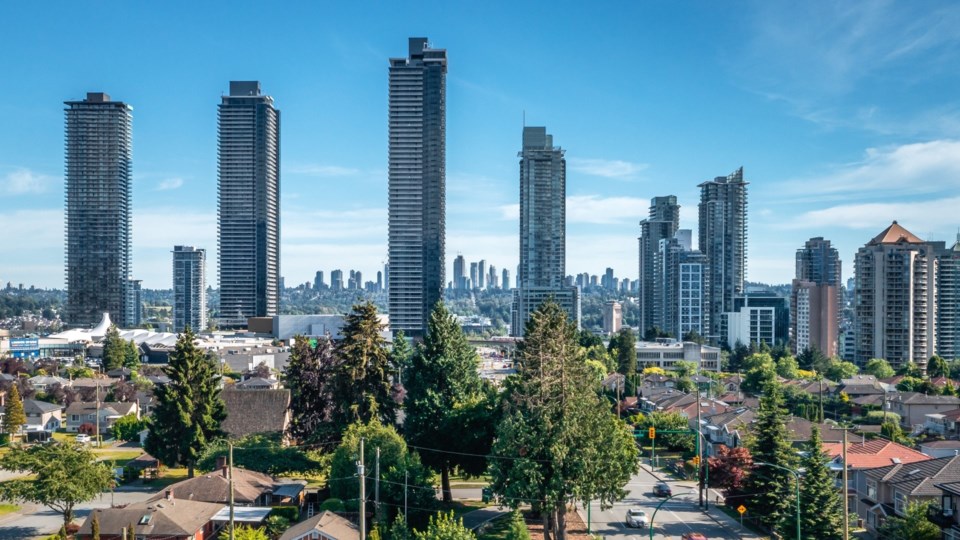It isn't getting any cheaper to rent in Burnaby, according to a new report.
Rentals.ca's December stats show Burnaby is still boasts the third highest price for rent in all of Canada with a one-bedroom averaging $2,304 while a two-bedroom is inching closer to $3,000 at $2,968, increases of 0.6 and 2.2 per cent respectively in the last month.
Toronto is the second most expensive city to rent from in the country with averages of $2,532 and $3,347.
Vancouver continues to be number one with a single bedroom coming in at an average of $2,633 and two bedrooms at $3,598.
When it comes to buying, the Real Estate Board of Greater Vancouver (REBGV) said in November that regional residential sales totalled 1,614, a 52.9 per cent decline from the 3,428 sales that were seen in the same month in 2021.
November's numbers were also a 15.2 per cent drop from 1,903 homes sold in October of this year.
"With the most recent core inflation metrics showing a stubborn reluctance to respond significantly to the furious pace of rate increases, the Bank of Canada may choose to act more forcefully to bring inflation back toward target levels," REBGV spokesperson Andrew Lis said in a news release.
In Burnaby, residential/composite prices in Burnaby East were recorded at a benchmark price of $1,107,700 in November (-1.6 per cent compared to October of 2022), $982,500 in Burnaby North (-1.2 per cent) and $1,055,700 in Burnaby South (-0.8 per cent).
Single family detached house prices in Burnaby all saw drops last month, with Burnaby South at a benchmark price of $2,028,700 (-1.9 per cent), $1,922,100 in Burnaby North (-1.3 per cent) and $1,765,600 in Burnaby East (-3.4 per cent).
"Heading into 2023, the market continues the trend of shifting toward historical averages and typical seasonal norms," Lis added.
"Whether these trends continue will depend on looming economic factors and forthcoming housing policy measures on the horizon, which hold the potential to reignite uncertainty in our market.
"With that said, from a long-term structural standpoint, the current pace of listings and available inventory remain relatively tight when considered against a backdrop of continued in-migration to the province. With the recently announced increase in federal immigration targets, the state of available supply in our market remains one demand surge away from renewed price escalation, despite the inflationary environment and elevated mortgage rates."
Areas covered by the REBGV include Burnaby, Coquitlam, Maple Ridge, New Westminster, North Vancouver, Pitt Meadows, Port Coquitlam, Port Moody, Richmond, South Delta, Squamish, Sunshine Coast, Vancouver, West Vancouver and Whistler.

